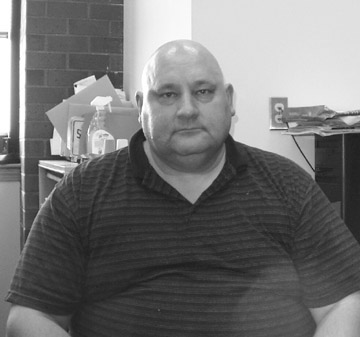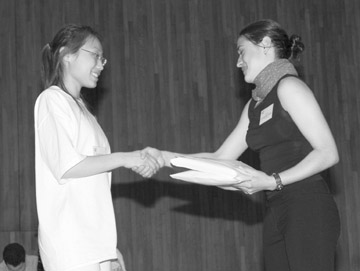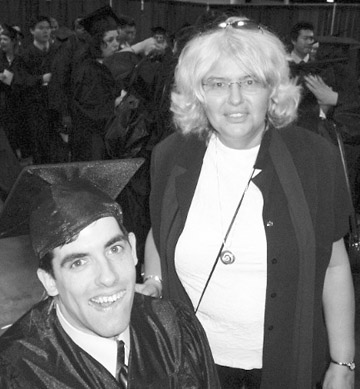Harvard Prof: “Voting in America in Danger”
April 8, 2004
After the chaos of the 2000 presidential elections, Harvard University Professor David King took eighteen months away from the Institute of Politics at the Kennedy School of Government to travel the country and work with a national commission on election reform.
What he found troubled him: tremendous levels of apathy and high levels of voter suppression.
“Voting in America is in danger,” he told the small crowd of UMass Boston students and administrators.
It’s in crisis, especially among young people, he said. Political parties have not gone out to mobilize young voters, and the majority of young Americans currently live at home where their parents have never voted. With no role models in their homes, “we have a generation in crisis,” said King.
But that’s the bad news, he continued. The good news is the current generation is much different from his, the baby boomers, and it can be seen in community service, “going from the ‘Me Generation’ to the ‘We Generation.'” Sixty-eight percent of college students have performed community service, twenty-one percent within the previous week, he said.
Among those regularly involved in community service is recently-elected student trustee Jamal Brathwaite, who, along with the Division of Student Affairs and the Office of Service Learning and Community Outreach, helped bring King to campus for the town hall-style meeting.
“You cannot quantify the value of community service,” said Brathwaite, involved in community service since he was thirteen years old.
Generation X, King says, is likely already lost in terms of voting. But there is still hope for the Millennials-those who are just starting college, or are in high school or middle school. Forty-one percent of millennials refuse to assign themselves the usual political labels of Democrat, Republican, liberal, or conservative. “Millennial people say, ‘Don’t label me, they don’t fit,'” said King. But this gives way to a paradox, he continues, since the generation is “highly ideological” and “ripe for adhering to a political ideology.”
While this means that they are a “terrific source for votes in the future,” campaigns and political parties continue to do little to reach out. A large part of this problem is that the needs of political parties and campaigns are in contrast with the needs of a democracy, he said. Young people don’t have a history of voting, so it immediately takes them down several notches on the parties’ lists.
One of the needs of the campaigns is to persuade voters, which usually means just focusing on three issues. But one of the needs of a democracy is to educate, not persuade voters, said King. Campaigns also need people to invest money in them, but democracy needs for citizens to invest psychologically in the candidates. Democracy is not looking at the next election, but at the best interests of the country.
“We cannot count on political parties to heal this wound,” said King, or on baby boomer parents and Generation X siblings. “They haven’t invested in democracy, they haven’t invested in you.”
King, who has sat on the non-partisan, non-profit Youth Voter Corps board since 2001 and was a faculty sponsor for the Youth Engagement Initiative at Harvard’s Institute of Politics the same year, encouraged students to participate in elections and not to let their children grow up like they did. At most, eighteen states are in play in this coming presidential election. “Young people can make a difference in those states,” he said. Massachusetts is not expected to be one of them. Democratic presidential candidate John F. Kerry won his last election here in a landslide. King himself has been involved in politics, having participated in Al Gore’s 1988 presidential bid and Massachusetts Professors for Colin Powell for President in 1996, according to his short bio on the Harvard website.
Chancellor Jo Ann Gora took the opportunity to urge students to vote, not just in the national elections, but the “very, very local” elections at UMass Boston, like the Student Senate and Graduate Student Assembly. Student Senate elections take place April 15. “When Americans choose not to vote, they not only lose their voice,” said Gora, but they put America’s way of life at risk. Gora singled out for praise the Graduate Student Assembly, which several weeks ago had held an on-campus voter drive that registered 200 voters and quickly ran out of ballots.
Said Vice Chancellor of Student Affairs J. Keith Motley, “There is nothing more powerful than a student’s voice.”























































